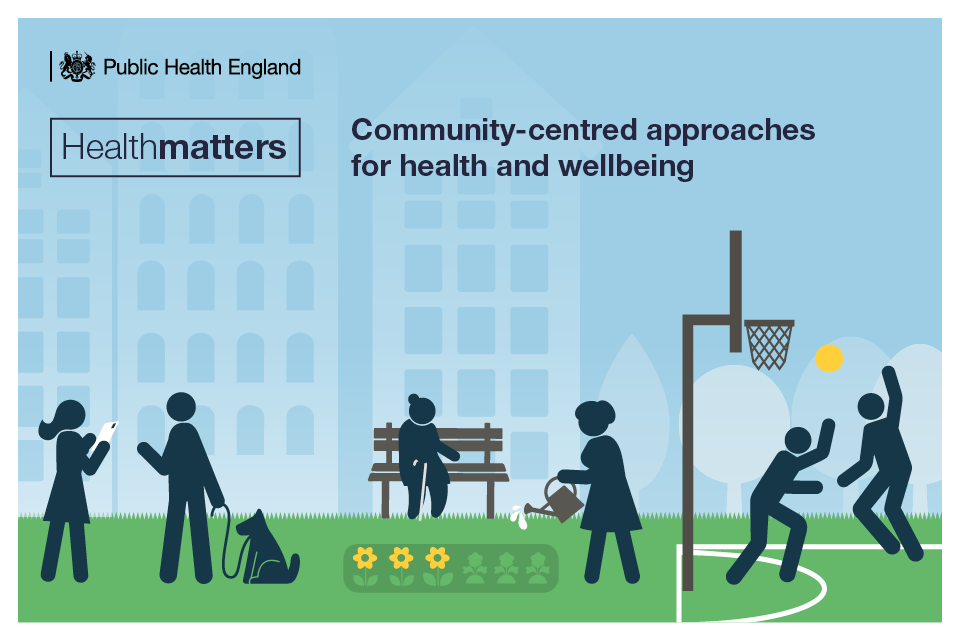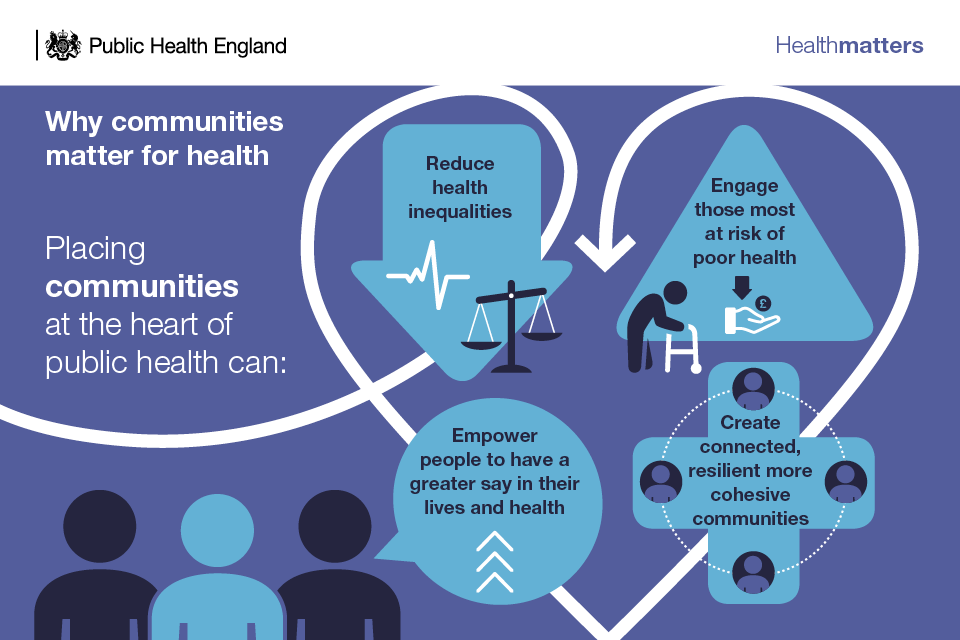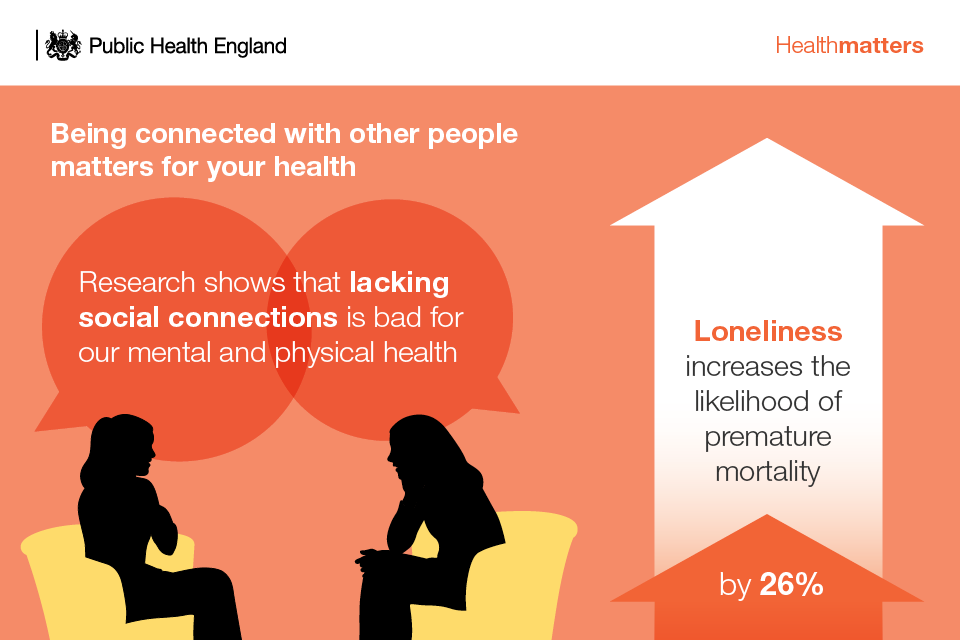
Welcome to the latest edition of PHE’s Health Matters, a resource for local authorities and health professionals, which for this edition focuses on community-centred approaches for health and wellbeing.
Why communities matter
Positive health outcomes can only be achieved by addressing the factors that protect and create health and wellbeing, and many of these are at a community level.
Community life, social connections and having a voice in local decisions are all factors that make a vital contribution to health and wellbeing. They build control and resilience, help buffer against disease and influence health-related behaviour and management of long-term conditions. Community-centred ways of working are important for all areas of public health – health improvement, health protection and healthcare public health.

Involving and empowering local communities, and particularly disadvantaged groups, is central to local and national strategies in England for both promoting health and reducing health inequalities.
The National Institute for Health and Care Excellence (NICE) guidance reiterates the importance of community engagement as a strategy for health improvement, particularly as it leads to services that better meet the community members’ needs.
Being connected matters for your health
Loneliness and social isolation are damaging to our health, both mentally and physically. Being cut off from social interaction affects people of all ages, especially young people and older adults.
The Community Life Survey 2016-17 found that 5% of adults in England reported they felt lonely often or always, which has remained unchanged since 2013. Most, but not all people have someone to rely on, and over half (54%) stated they felt lonely hardly ever or never.
Health inequalities persist and many people experience the effects of social exclusion or lack of social support. The Marmot Review provided evidence that in order to reduce health inequalities in England, we must improve community capital and reduce social isolation across the social gradient.

Building social capital with community-centred approaches
This edition of Health Matters focuses on the use of community-centred approaches to enhance individual and community capabilities, create healthier places and reduce health inequalities.
Community-centred approaches are not just community-based, but about mobilising assets within communities, promoting equity, and increasing people’s control over their health and lives. Most local authorities are embracing community-centred ways of working, but the challenge that many are now seeking to achieve is the scaling-up of a whole-system community-centred and asset-based approach that is built ‘bottom-up’ from the diversity of grassroots community organisations and members.
The ‘family of community-centred approaches’ has been developed as a framework to represent some of the practical and evidence-based options that can be used to improve community health and wellbeing. It includes four strands of community-centred approaches for health and wellbeing, including:
- strengthening communities
- volunteer and peer roles
- collaborations and partnerships
- access to community resources
Read this edition of Health Matters to learn about each of the strands of the family model, some of the successful interventions that have been implemented across England, and the specific calls to action to achieve a community-centred approach to health and wellbeing, including the need to:
- develop a whole-system approach across sectors
- ensure genuine co-design and co-delivery
- map and mobilise local assets
- commission across the four strands of the family
- measure community outcomes that matter
- integrate community-centred, asset-based approaches as part of place-based commissioning and strategic planning
This edition also includes a suite of infographics, case studies and slides to support local commissioning and delivery. There are also e-learning modules available on community-centred approaches.
Visit the Health Matters area of GOV.UK to see the wide range of topics Health Matters has covered (other recent editions have looked at the NHS Health Check and CVD prevention, productive healthy ageing and musculoskeletal health, preventing infections and reducing AMR, alcohol and tobacco use, and cervical screening) or sign up to receive the latest updates through our e-bulletin.
And if you found this blog helpful, please view other Health Matters blogs.
Health Matters
Health Matters is a resource for professionals which brings together the latest data and evidence, makes the case for effective public health interventions and highlights tools and resources that can facilitate local or national action. Visit the Health Matters area of GOV.UK or sign up to receive the latest updates through our e-bulletin. If you found this blog helpful, please view other Health Matters blogs.

1 comment
Comment by Mr R W Ebley posted on
In order that change is effectively undertaken all levels of government and other public funded organisations need to demonstrate good management
Independent management accreditation is required to achieve this
Thank you